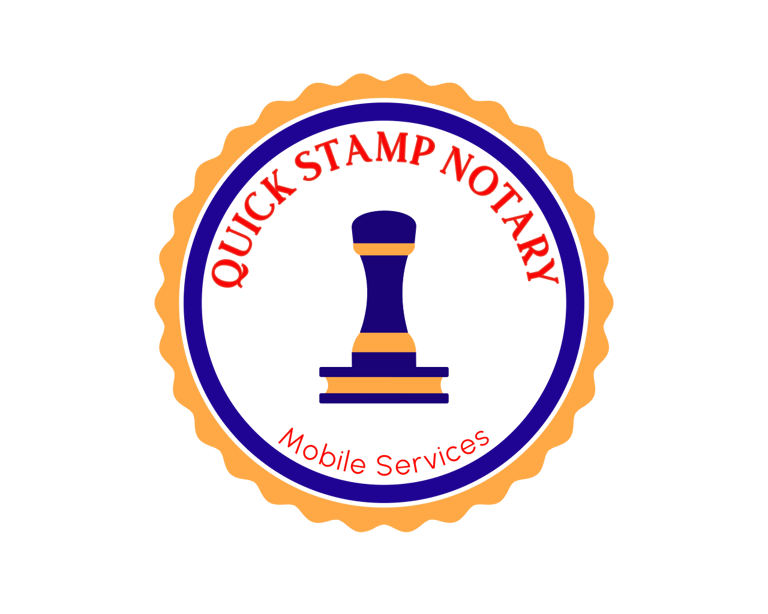Frequently asked questions
What is a notary?
A notary is a public official whose powers and duties are defined by statute. A notary acts as an official, unbiased witness to the identity and signature of the person who comes before the notary for a specific purpose. The key function for the notary is to be certain that the person appearing before them is who that person claims to be.
A notary is not a lawyer, and therefore cannot interpret documents, provide advice, or suggest how to complete a form or document.
A notary CANNOT certify true copies of birth, death, or marriage certificates or court issued documents; give advice about a document a customer needs; offer an opinion about the legality or effect of a document; choose the type of notarization or certificate wording for a given document (the customer must decide); prepare a document or give advice on how to fill out, draft, or complete a document; or provide legal advice or answer questions about a legal matter.
Why should I use Quick Stamp Notary?
Some banks, credit unions, government offices, or similar establishments may offer free notary services. However, these options may not always be the most practical or convenient for your needs. Sometimes, these entities are reluctant or unable to notarize wills, trusts, or other legal documents. Also, a no-cost notary may set restrictions on how many stamps they will provide at one time. You also have to go to them and are subject to the notary’s office hours and availability.
If you need documents notarized and want it done on your terms – at your location of choice - after normal business hours, on a weekend, or on a holiday, that’s when you call Quick Stamp Notary!
What types of documents need to be notarized?
Many types of documents require notarization, including personal documents, business documents, employment documents, legal documents, and healthcare/medical documents.
The following is a non-exhaustive list of documents that Quick Stamp Notary can notarize. Call or text 703-999-5813 to inquire about notarization for your specific document.
Acknowledgments
Affidavits
Sworn Statements and Declarations (Oaths)
Copy Certifications
Powers of Attorney
Wills
Trusts
Separation Agreements
Child Custody Agreements
Divorce Decrees
Parental Consent Forms
Medical Directives
Passport Applications
Tax Relief Applications
…..and more!
What type of identification is required?
Before performing a notarial act, a notary must be certain of the identity of each person whose signature will be notarized. Identity must be ascertained by examination of one or more of the following unexpired and original documents:
State Issued Driver’s License
State Issued Identification Card
United States Military Identification Card
United States Green Card with Photograph
Certificate of United States Citizenship
Certificate of Naturalization
United States Passport or Card
Foreign Passport
Do I need a witness in addition to a notary?
Some documents, like wills or deeds, may require a witness(es) in addition to notarization. The person you choose to witness a document should have no financial or other interest in the agreement/document that is being signed. For that reason, a witness should be a neutral third party – someone who is not related to either party and who does not benefit from the agreement or document being signed.
When coordinating a witness for your appointment, please ensure that your witness is at least 18 years of age and can provide an unexpired and original identification document (see the list of acceptable documents). Unfortunately, Quick Stamp Notary does not provide witnesses.
Will my personal information be safeguarded?
In order to evaluate your needs, Quick Stamp Notary may request to see a copy of the document you need notarized in advance of your appointment. You can rest assured that all identification documents and documents presented for notarial acts will be safeguarded and kept strictly confidential.
When is payment due?
Upon scheduling an appointment, Quick Stamp Notary will email or text a confirmation along with an invoice for fees which are due prior to notarization of documents.
What forms of payment are accepted?
Quick Stamp Notary accepts all major credit and debit cards! Payment may also be made by using Apple Pay, Zelle, Venmo, Cash App, or with cash.
What other important information do I need to know?
DO NOT sign your document before you personally appear before the notary. Quick Stamp Notary must first positively verify your identity and then physically watch you sign the document.
Your document must have a pre-printed notarial certificate included or attached to it. If not, Quick Stamp Notary will show you examples of notarial certificates and you may choose from the provided options. Quick Stamp Notary cannot recommend or imply which notarial certificate is appropriate for your document, as notaries are not authorized to give legal advice.
A notary public may refuse to notarize a document for any reason.
